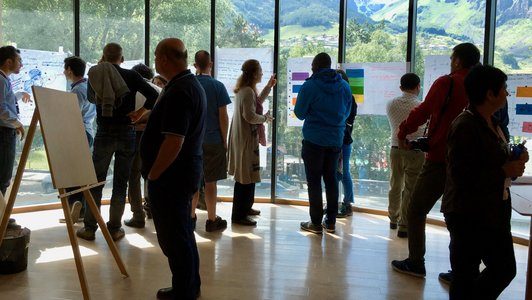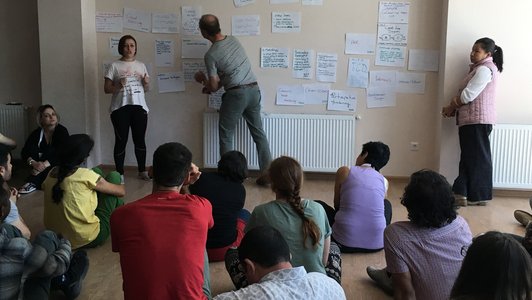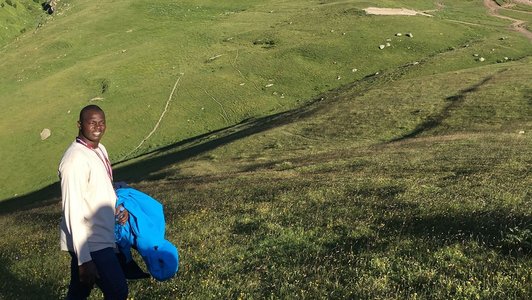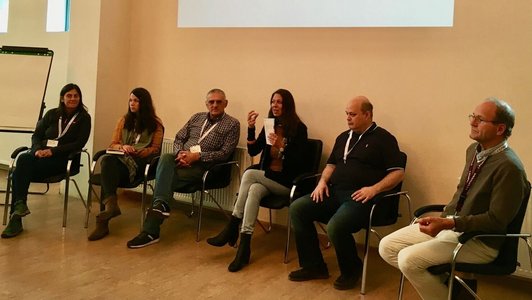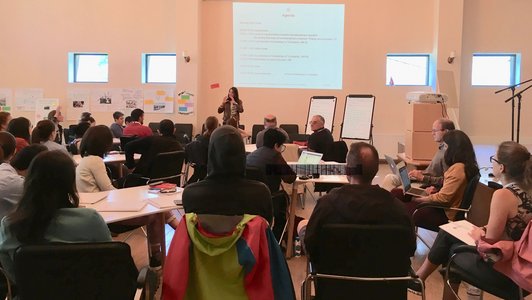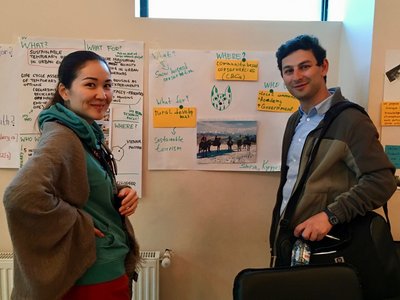

The Transdisciplinary Summer School “Research at the Science | Society Interface within an intercultural Orientation” was held from 1st to 5th of July in Stepansminda, Kazbegi Region (Georgia). It was jointly organized by Leuphana University (Germany), University of Natural Resources and Life Sciences, BOKU (Austria) and Tbilisi State University (Georgia). More than 40 people from 17 countries from Latin America to Europe, from Africa to Asia with different professional backgrounds and academic disciplines, were making the summer school unique.
APPEAR scholars Tigran, Hasmik, Lela and Bienvenue, who are PhD candidates at BOKU, shared their impressions about their participation at the summer school.
Tigran Keryan from Armenia conducts research on the implementation of transdisciplinary approaches in the post-Soviet academic system, particularly in Armenia and Georgia. He had an active role in the summer school and presented his results about the societal role of Armenian Universities. He stresses that the conference was very useful for him to see how transdisciplinarity could work in different cultural environments.
Hasmik Hovakimyan, who also comes from Armenia, underlines that there is a big gap between theory and “real world” (practice). For conducting better research scientists have to adopt transdisciplinary research methods. Therefore the summer school provided the chance to learn about some of those methods: boundary work, integration, mutual learning, coupling methods, visioning and scenario techniques. In addition, the participants gave group-presentations about participatory action research on some real cases. Hasmik was impressed with the lectures and states: “The school came to change the mapping of my own research in my mind, as from even every single conversation with field specialists you learn something and want to apply your new knowledge in the work you do!”
Lela Khartishvili from Georgia highlights that in addition to studying various methods and techniques the discussions with local residents from different institutions, such as the municipality, NGOs, a local action group, private business entities and farmers were highly relevant. This helped to better understand the situation on the ground. Apart from that they shared and worked out some tools in place. The summer school inspired Lela to look at things differently and to integrate new tools into her research.
While Lela even comes from Kazbegi region it was for Bienvenue Zoma, from Burkina Faso, the first time to visit the Caucasus region. The researcher explained that the study of a case design was a great opportunity to apply transdisciplinary approaches in practice. He now feels more confident working with farmers in Burkina Faso, encouraging them to share their indigenous knowledge about livestock keeping and to integrate this in his research. Bienvenue concludes: “The summer school was a successful experience to learn what we can call ‘democratization of research’, that means research WITH and FOR local actors.”
Tigran and Lela are PhD students at the Institute of Landscape Development, Recreation and Conservation Planning; Hasmik is a PhD at the Institute of Organic Farming and Bienvenue at the Institute of Livestock. Scholarships for the participation were provided by the APPEAR project Transdisciplinarity for Sustainable Tourism Development in the Caucasus Region | CaucaSusT and Doctoral School T2S.

